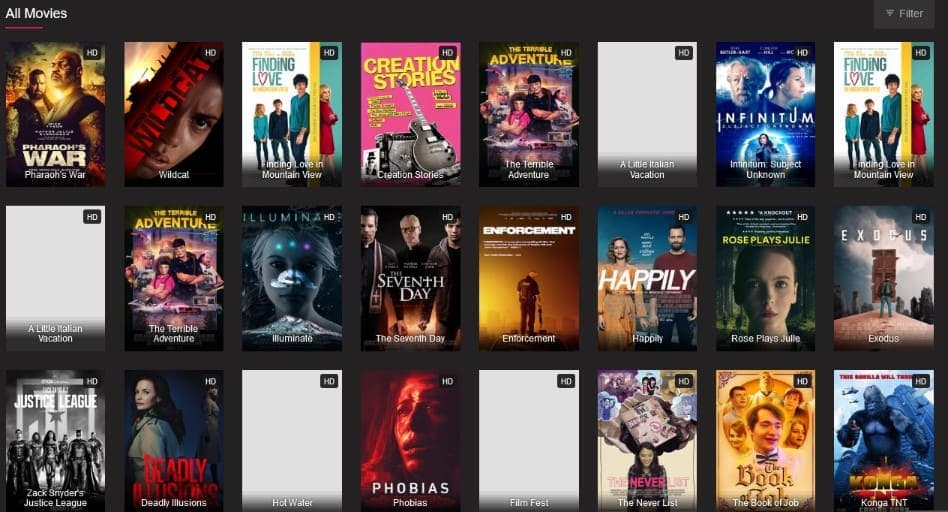Megashare and Primewire: The Free Streaming Revolution

Imagine sinking into your favorite chair after a long day, eager for a movie night. But instead of paying for another streaming subscription, you discover Megashare or Primewire. It’s like finding a hidden doorway to a world of free entertainment. This digital haven promises endless access to movies and TV shows without spending a dime. Yet, as you venture through this virtual wonderland, you might wonder: What’s the catch?
The Allure of Free Streaming
In the early 2010s, Megashare and Primewire were like the secret speakeasies of the digital age. They offered a tempting escape from the constraints of paid streaming services. For many, these platforms represented a golden opportunity to enjoy a vast array of content without the burden of subscription fees.
I still remember the excitement of discovering Megashare in my college days. With a tight budget and a mountain of textbooks, I was in desperate need of a break. A friend shared the secret, and suddenly, I had access to a treasure trove of movies and TV shows. It felt like finding a hidden stash of gold, offering a much-needed escape from academic pressures.
What Made Megashare and Primewire So Irresistible?
Here’s what drew people to these platforms:
- Immediate Access: No sign-ups, no monthly fees—just search for what you want and hit play. It was like having an all-you-can-watch movie theater right in your living room.
- Extensive Libraries: Whether you were craving the latest blockbuster or a rare indie film, these sites had it all. The sheer volume and variety were unparalleled.
- User-Driven Content: The content was often uploaded by users, allowing access to niche and international films that might not have been available elsewhere.
But the allure of free streaming came with its own set of complications.
The Hidden Dangers: Legal and Security Risks
While Megashare and Primewire offered convenience, they operated in a legal gray area. Much of the content was pirated, meaning it was uploaded without proper authorization. Imagine discovering a rare artifact only to find out it was stolen—it’s a thrilling find, but ethically questionable.
Additionally, these sites were notorious for their security risks. The promise of free content often came with a side of intrusive ads and potential malware. Using these sites was akin to navigating a minefield: you could enjoy the free entertainment, but at the risk of encountering malicious software or phishing schemes.
The Crackdown: The Legal Battle
As the popularity of Megashare and Primewire soared, so did the legal pressure. The entertainment industry, losing revenue to these piracy sites, began a vigorous crackdown. Lawsuits were filed, domains were seized, and the sites faced a relentless cycle of being taken down and resurfacing under new names.
In 2014, Megashare was shut down, causing a stir among its users. Primewire faced a similar fate, with its sites frequently changing domains to avoid legal action. This ongoing battle highlighted the unstable nature of relying on such platforms.
The Ethical Dilemma: Access vs. Intellectual Property
The story of Megashare and Primewire brings to light a broader ethical debate. On one side, there’s the argument that content should be more accessible. High subscription costs can be prohibitive, making free options appealing.
On the other hand, piracy undermines the hard work of creators and industry professionals. Picture spending years creating a film or show, only to see it distributed without your permission or compensation. The challenge is finding a balance between making content accessible and respecting the rights of those who create it.
The Evolution of Streaming: A Modern Perspective
Today’s streaming landscape is vastly different. Legal services like Netflix, Hulu,entertainment and Disney+ offer a wide range of content at competitive prices, including ad-supported tiers that make streaming more affordable. The need for piracy sites has diminished as these platforms provide diverse and legal alternatives.
Yet, the legacy of Megashare and Primewire lingers. They were trailblazers during a time when legal streaming options were limited, and their rise and fall reflect the growing demand for accessible content. Their story serves as a reminder of the ongoing need to balance convenience with legality and ethical considerations.
Conclusion: Lessons from the Free Streaming Era
The tale of Megashare and Primewire is more than just a chapter in the history of free streaming; it’s a reflection of the complexities of the digital age. These platforms offered a glimpse into a world where entertainment seemed effortlessly accessible, but they also highlighted the intricate issues of legality and ethics.
As we navigate today’s streaming landscape, the lessons from Megashare and Primewire remind us to value the content we consume and consider the broader implications of our digital choices. The evolution from the shadows of free streaming to the diverse, legal options we have today underscores the importance of balancing convenience with respect for intellectual property. So, as you enjoy your next movie night, take a moment to appreciate the journey from free streaming to the robust, legal platforms available today.








